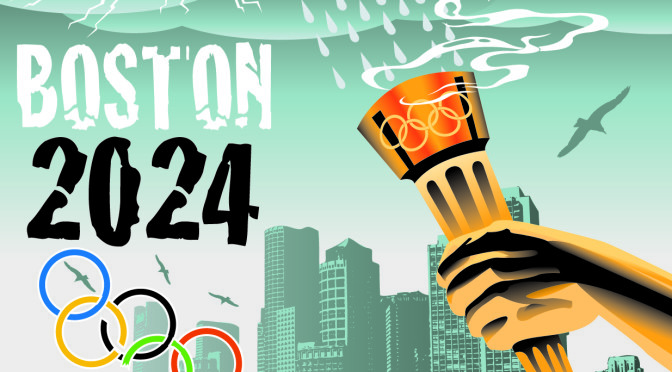Boston is capable of providing adequate venues, transportation, and housing for the Olympic competitions, competitors, and spectators in a way that will not create architectural burdens for the city. With careful architectural design and master planning, Boston can host the 2024 Olympic Games without the negative effects suffered by other Olympic host cities. Continue reading BOSTON SUMMER 2024
Tag Archives: Olympics
LECTURE: Jessamyn Abel – Reflection
Super Express of Dreams and the Olympiad Cloud
1964: Opening of the Tōkaidō Shinkansen and the Tokyo Olympics
Jessamyn Abel is the assistant professor in Asian studies and history at Pennsylvania State University; more specifically she focuses on the history of modern Japan. She was very enthusiastic about the topic of the Olympics and the Bullet Train that made its culmination around 1960s. The overall theme of her presentation centered around the idea of the rebuilding and reimagining of Japan in order to reidentify itself as a modern and international society by way of construction of a new infrastructure and transportation system. With these changes however, brought about a fresh look into Tokyo and its surrounding cities.
She started off mentioning that Japan wanted to establish itself as city to be reckoned with amongst foreigners and tourists who were coming to participate in the Olympic festivities and also those watching the games through the television as this was the first games to be broadcasted via satellite. Hosting the 1964 Olympic games meant that Japan could be on the map of modernity and they wanted to prove to the rest of the world its greatness. The displacement of businesses and families began in order to make way for the stadiums and transportation systems needed to accommodate Olympic participants. As an island with little affordable and available land, initially many people were opposed to the idea and the tearing down of homes left lots of controversy. However, the physical rebuilding of the new infrastructure led to a stronger economy for Japan as well as a new perception of Japan: a global enterprise.
What really helped push Japan’s movement towards modernity and recognition of internationality was the completion of the world’s fastest commuter train, the Tōkaidō Shinkansen. The “Bullet Train of Dreams” allowed the society to become a more fast paced and easily accesible country. Travels to local villages that used to take days of time (and an overnight stay) only took a few hours, thus changing the aura of quaint local flavor to a bustling town with many tourists. Although, the Bullet Train altered the local culture, new patterns of tourism and new views of cities never discovered before came about. Tokyo was not the only centralized and oppulent city, Osaka joined in the picture.
Abel’s lecture made me think of a Japanese history class that I had taken in high school. One of the first concepts of Japanese cultural I learned about revolved around the concept of improvement. The Japanese were very good at improving and changing original ideas for the betterment of their society. Japanese cultural and societal values are more respectful to the good of the entire country. Their image and prosperity to other nations is of significant importance, which is clearly exemplified in their efforts even in the 60s to modernize their culture. So I am wondering what is to come for the country in 2020 when Tokyo hosts its second Olympics and in 2027 when the second fastest train emerges in Japan.
Why Boston Can Survive The Olympics
PERIODICAL: Architect Magazine
THESIS
With careful planning, Boston can host the 2024 Olympic Games without the negative effects suffered by other Olympic host cities.
SUMMARY
The modern Olympics began in 1896 in Athens. In 1894 Pierre de Coubertin founded the International Olympic Committee as the governing body of the Games. The IOC is responsible for choosing the host city every two years alternating between the Summer and Winter Games. Continue reading Why Boston Can Survive The Olympics
